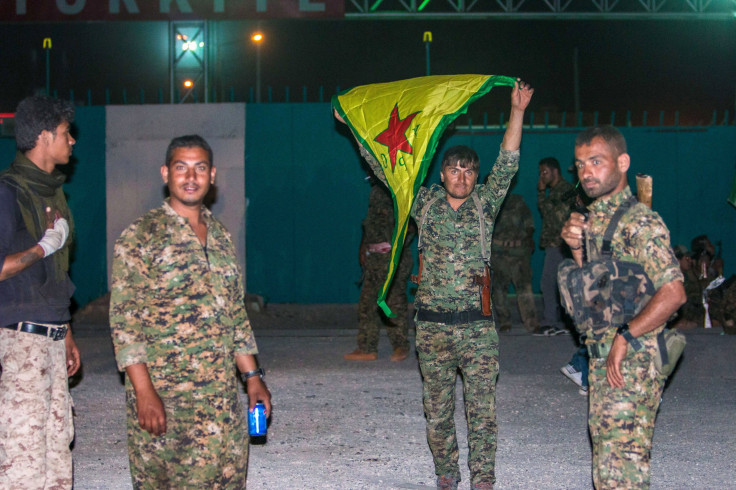Advance On Raqqa: Kurdish Fighters, Syrian Rebels Seize Military Base North Of ISIS Stronghold

Syrian Kurdish fighters are battling the Islamic State group once again in Syria. On Monday, Kurds were closing in on the militant’s de-facto headquarters in Northern Syria, flanked by some Syrian rebel factions.
On Monday, Kurdish People’s Protection Units (YPG) fighters seized the strategically located Liwa (brigade) 93 former Syrian military base, just 45 kilometers away from Raqqa city, monitoring groups said. American-led coalition airstrikes reportedly supported the Kurdish ground operation on the group also known as ISIS’ stronghold in Syria.
"IS lines of defence were pushed back to the gates of Raqqa," Rami Abdel Rahman, director of the Syrian Observatory for Human Rights, a Britain-based monitoring group, told Agence France-Presse.
The YPG advance on ISIS territory began earlier this month when the Kurds were able to retake control of Tel Abyad, a key town on the border between Syria and Turkey. From Tel Abyad, Kurdish forces were able to seize the small towns on the road to Raqqa, eventually arriving at Brigade 93 in Ain al-Issa.
Devrim yolunda bir bir engeller alınmalı... 93. Alay (Liwa 93) düştü, YPG Eyn İsa ve dolayisiyla Rakka'ya ilerliyor! pic.twitter.com/0UR1AqmNFC
— Ikram Balekanî (@ikrambalekani) June 22, 2015“Brigade 93 is located in an elevated area, the control of which will facilitate the process of advancing on and capturing the village of Ain Issa,” a spokesman for the Revolutionaries, a rebel group fighting alongside the YPG, told Syria Direct.
ISIS overran the army’s Division 17 base last August, forcing hundreds of soldiers to flee to the nearby Brigade 93. Militants arrived at Brigade 93 just days later, after ISIS already controlled much of Raqqa province. Dozens of Syrian soldiers were executed and many others died in ISIS’s initial suicide attack on the base.
Raqqa has long been considered the capital of ISIS's so-called caliphate. The city is often the first stop for foreign fighters and was the home base for many fighters returning from battle. The militant group is also believed to have kept hostages hidden in the city, where it runs all public services. Raqqa is home to ISIS-controlled schools, internet cafes and even waste removal services carried out by the militants.
"A push into Raqqa and toward Raqqa city threatens Isil’s center of gravity, in addition to its potent symbolism," Faysal Itani, a fellow with the Atlantic Council's Rafik Hariri Center for the Middle East, told the Telegraph.
© Copyright IBTimes 2024. All rights reserved.












